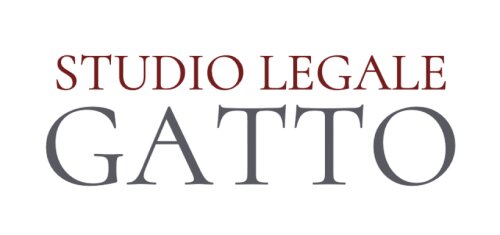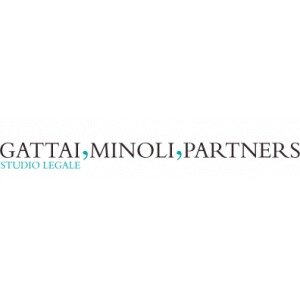Best Restructuring & Insolvency Lawyers in Milan
Share your needs with us, get contacted by law firms.
Free. Takes 2 min.
List of the best lawyers in Milan, Italy
About Restructuring & Insolvency Law in Milan, Italy
Restructuring and insolvency law in Milan, Italy, focuses on addressing situations where a business or individual cannot meet their financial obligations. Milan, as the financial and commercial hub of Italy, plays a central role in the country’s restructuring and insolvency procedures. Italian law provides a set of tools and legal processes to assist businesses and creditors in managing insolvency risks, restructuring debt, and, when necessary, guiding companies through orderly liquidation. These laws aim to balance the interests of debtors, creditors, employees, and the broader economy, with the goal of preserving viable businesses and maximizing creditor recoveries.
Why You May Need a Lawyer
There are many situations in which individuals or businesses in Milan might need the guidance of a restructuring and insolvency lawyer. Common reasons include:
- You are facing mounting debts and cannot meet payment obligations.
- Your business is experiencing severe financial distress and you need to evaluate restructuring options.
- As a creditor, you are concerned about recovering debts from a company experiencing insolvency.
- You need assistance navigating complex Italian insolvency procedures or negotiating with stakeholders.
- You want to protect your rights during bankruptcy proceedings, whether as a debtor, creditor, investor, or employee.
- You require guidance on restructuring loans, reaching agreements with lenders, or initiating recovery proceedings.
- You are interested in exploring alternatives to bankruptcy, such as debt restructuring plans, preventative arrangements, or concordato preventivo.
A specialized lawyer can advise you on the most suitable legal solutions, represent you in negotiations, and ensure compliance with evolving local laws.
Local Laws Overview
Restructuring and insolvency in Milan are governed primarily by the Italian Insolvency Code (Codice della Crisi d’Impresa e dell’Insolvenza), which has been recently reformed to reflect modern economic needs and European Union directives. Some key aspects include:
- Preventative Arrangements (Concordato Preventivo): This is a court-supervised restructuring procedure allowing debtors to propose a plan to repay creditors and avoid bankruptcy.
- Debt Restructuring Agreements (Accordi di Ristrutturazione): These are agreements reached between the debtor and a majority of creditors. If approved, they can bind dissenting creditors if certain thresholds are met.
- Judicial Composition and Liquidation: When restructuring is not feasible, judicial liquidation may occur. This process sells assets to pay creditors in a court-supervised order of priority.
- Allerta Procedure: A relatively new aspect, this aims to detect crisis situations early, requiring companies to implement internal control systems and report financial distress to competent bodies.
- Cross-Border Insolvency: Milan often deals with multinational cases, requiring coordination with EU regulations and treaties on insolvency recognition and cooperation.
It is essential to act promptly, as failing to initiate procedures on time can lead to personal liabilities for directors and managers.
Frequently Asked Questions
What is the difference between restructuring and insolvency?
Restructuring refers to legal and financial processes aimed at reorganizing a distressed company to restore its viability. Insolvency is the situation where a debtor cannot pay debts as they fall due or is in a state of excessive indebtedness.
What are the main procedures available for a company in financial distress in Milan?
The main procedures include preventative arrangements (concordato preventivo), debt restructuring agreements (accordi di ristrutturazione dei debiti), and, if necessary, judicial liquidation (liquidazione giudiziale), previously known as bankruptcy.
Can a company continue to operate during insolvency proceedings?
Yes, in certain procedures like concordato preventivo, the company can continue trading under supervision. In judicial liquidation, a court-appointed liquidator manages the company and operations may be limited.
What rights do creditors have in Italian insolvency proceedings?
Creditors have the right to be informed, participate in certain decisions, and lodge claims to recover debts. Secured creditors generally have preferential rights over proceeds from the sale of secured assets.
How does the Italian insolvency system protect employees?
Employees are considered privileged creditors and are often prioritized in the distribution of proceeds. The law also provides for wage guarantee funds in certain cases.
Are directors personally liable for insolvent trading in Italy?
Directors can be held personally liable if they fail to take timely action when the company shows signs of crisis or if they act fraudulently or negligently.
How long does insolvency or restructuring usually take in Milan?
Timeframes vary depending on the complexity of the case and the procedure chosen. Debt restructuring may take several months, while liquidation can last one or more years.
What is the 'allerta' procedure?
The allerta procedure is an early warning mechanism requiring companies to monitor financial health and report crises to promote timely intervention, potentially avoiding insolvency.
Can foreign creditors participate in Italian insolvency proceedings?
Yes, foreign creditors have the same rights as domestic creditors. The court and appointed professionals ensure notifications and claim procedures are accessible to foreign parties.
Is it possible to restructure debts outside formal court proceedings?
Yes, private negotiations and out-of-court agreements are common, especially in pre-insolvency phases. However, to ensure enforceability against dissenting creditors, court approval may be needed.
Additional Resources
If you are seeking information or assistance regarding restructuring and insolvency in Milan, the following resources may be helpful:
- Tribunale di Milano (Milan Court): Section dedicated to insolvency and commercial law proceedings.
- Ordine dei Dottori Commercialisti e degli Esperti Contabili di Milano: The professional body for accountants and auditors, important in insolvency matters.
- Banca d’Italia: Provides guidance and statistics relevant to financial distress situations.
- Camera di Commercio di Milano: The Milan Chamber of Commerce offers information and assistance for local businesses.
- Ministero della Giustizia: The Ministry of Justice provides national regulations and official updates on insolvency law.
- Associazioni di categoria: Trade and business associations often offer support or referrals to specialized professionals.
Next Steps
If you believe you need legal assistance in restructuring and insolvency in Milan, it is important to act quickly and consult a qualified lawyer who specializes in this field. You can start by:
- Gathering all relevant financial and business documents.
- Preparing a summary of your current situation and objectives.
- Contacting local professional associations for recommendations of specialized lawyers.
- Scheduling a consultation with a restructuring and insolvency lawyer to assess your options.
- Ensuring ongoing communication with stakeholders such as creditors, employees, and business partners, with your lawyer’s guidance.
Making informed decisions early can help protect your interests and lead to the most favorable outcome, whether you are seeking to rescue a business, recover debts, or navigate personal insolvency.
Lawzana helps you find the best lawyers and law firms in Milan through a curated and pre-screened list of qualified legal professionals. Our platform offers rankings and detailed profiles of attorneys and law firms, allowing you to compare based on practice areas, including Restructuring & Insolvency, experience, and client feedback.
Each profile includes a description of the firm's areas of practice, client reviews, team members and partners, year of establishment, spoken languages, office locations, contact information, social media presence, and any published articles or resources. Most firms on our platform speak English and are experienced in both local and international legal matters.
Get a quote from top-rated law firms in Milan, Italy — quickly, securely, and without unnecessary hassle.
Disclaimer:
The information provided on this page is for general informational purposes only and does not constitute legal advice. While we strive to ensure the accuracy and relevance of the content, legal information may change over time, and interpretations of the law can vary. You should always consult with a qualified legal professional for advice specific to your situation.
We disclaim all liability for actions taken or not taken based on the content of this page. If you believe any information is incorrect or outdated, please contact us, and we will review and update it where appropriate.

















